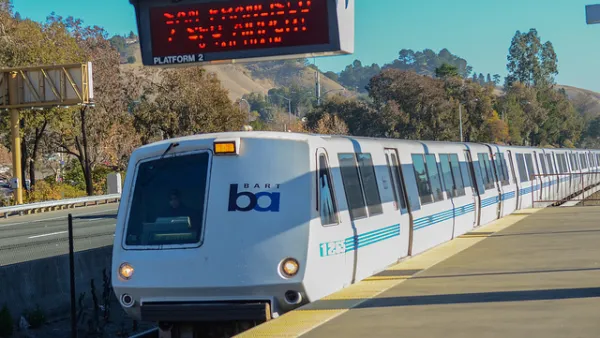Planning students are often told to find good information. How to do that is becoming both simpler, due to various search engines and databases, and more complex, given the amount of information available.
Planning students are often told to find good information. How to do that is becoming both simpler, due to various search engines and databases, and more complex, given the amount of information available. The following tips represent what I (and many other faculty members) actually do to find out about new things.
- Know something already. If you know something about the field you'll make better search decisions. You'll know key authors and organizations. I read a lot which makes searching easier. I also own a number of standard reference books--on topics from planning and design to social theory and research methods. I subscribe to and/or regularly read a number of magazines and journals. My list is a variation on the one offered by Rutgers faculty member Stuart Meck in a response to my last blog. It performs a similar function by giving me a place to start.
- Use specialist encyclopedias or dictionaries. The International Encyclopedia of Social and Behavioral Sciences (ed. Neil J. Smelser and Paul B. Baltes, 2001, Elsevier) has lots of entries on urban studies and planning and many university libraries subscribe to its online version. Entries are written by knowledgeable academics. I own dictionaries and encyclopedias of statistics, geography, philosophy, and architecture. They help me find out about key ideas and major thinkers in a subfield or on a topic--from social capital to Chonbach's alpha.
- Use specialist databases. University libraries subscribe to many databases--a favorite of mine is the Avery Index to Architectural Periodicals that includes quite a lot of planning articles (though not some from newer journals). In addition, as Stuart Meck mentioned in his ealier comment, there are several important online databases in planning. These include the TRB's Transportation Research Information Service (TRIS) and the HUD USER Database: http://www2.huduser.org/portal/bibliodb/pdrbibdb.html
http://tris.trb.org/. - Learn to be a sophisticated user of the internet. If I need academic sources I like using the databases that my library subscribes to but Google Scholar (not plain Google) is a good place to start if time is short. I particularly appreciate being able to enter a classic reference and see who cited it. The Berkeley libraries have an excellent guide to help you find and read web sites: http://www.lib.berkeley.edu/TeachingLib/Guides/Internet/FindInfo.html. Particularly useful is their section on evaluating web pages: http://www.lib.berkeley.edu/TeachingLib/Guides/Internet/Evaluate.html. They have great tips about how to evaluate the URL itself, assess information on the page perimeter, look for sources, and use reviews. This is basically what faculty do when they read web pages.
- Put ".edu" in with the search terms in an internet search to make extra sure you'll get some university web pages. University centers and institutes often have useful overview materials.
- Ask reference librarians how to find things. They can be helpful. I've learned a lot from them--particularly those specializing in images, maps, and statistical data.
Other blog entries have dealt with finding specific kinds of information including: general information about the field of planning, images, more images, articles, organizations, books, more books, and history sources.

Analysis: Cybertruck Fatality Rate Far Exceeds That of Ford Pinto
The Tesla Cybertruck was recalled seven times last year.

National Parks Layoffs Will Cause Communities to Lose Billions
Thousands of essential park workers were laid off this week, just before the busy spring break season.

Retro-silient?: America’s First “Eco-burb,” The Woodlands Turns 50
A master-planned community north of Houston offers lessons on green infrastructure and resilient design, but falls short of its founder’s lofty affordability and walkability goals.

Test News Post 1
This is a summary

Analysis: Cybertruck Fatality Rate Far Exceeds That of Ford Pinto
The Tesla Cybertruck was recalled seven times last year.

Test News Headline 46
Test for the image on the front page.
Urban Design for Planners 1: Software Tools
This six-course series explores essential urban design concepts using open source software and equips planners with the tools they need to participate fully in the urban design process.
Planning for Universal Design
Learn the tools for implementing Universal Design in planning regulations.
EMC Planning Group, Inc.
Planetizen
Planetizen
Mpact (formerly Rail~Volution)
Great Falls Development Authority, Inc.
HUDs Office of Policy Development and Research
NYU Wagner Graduate School of Public Service





























